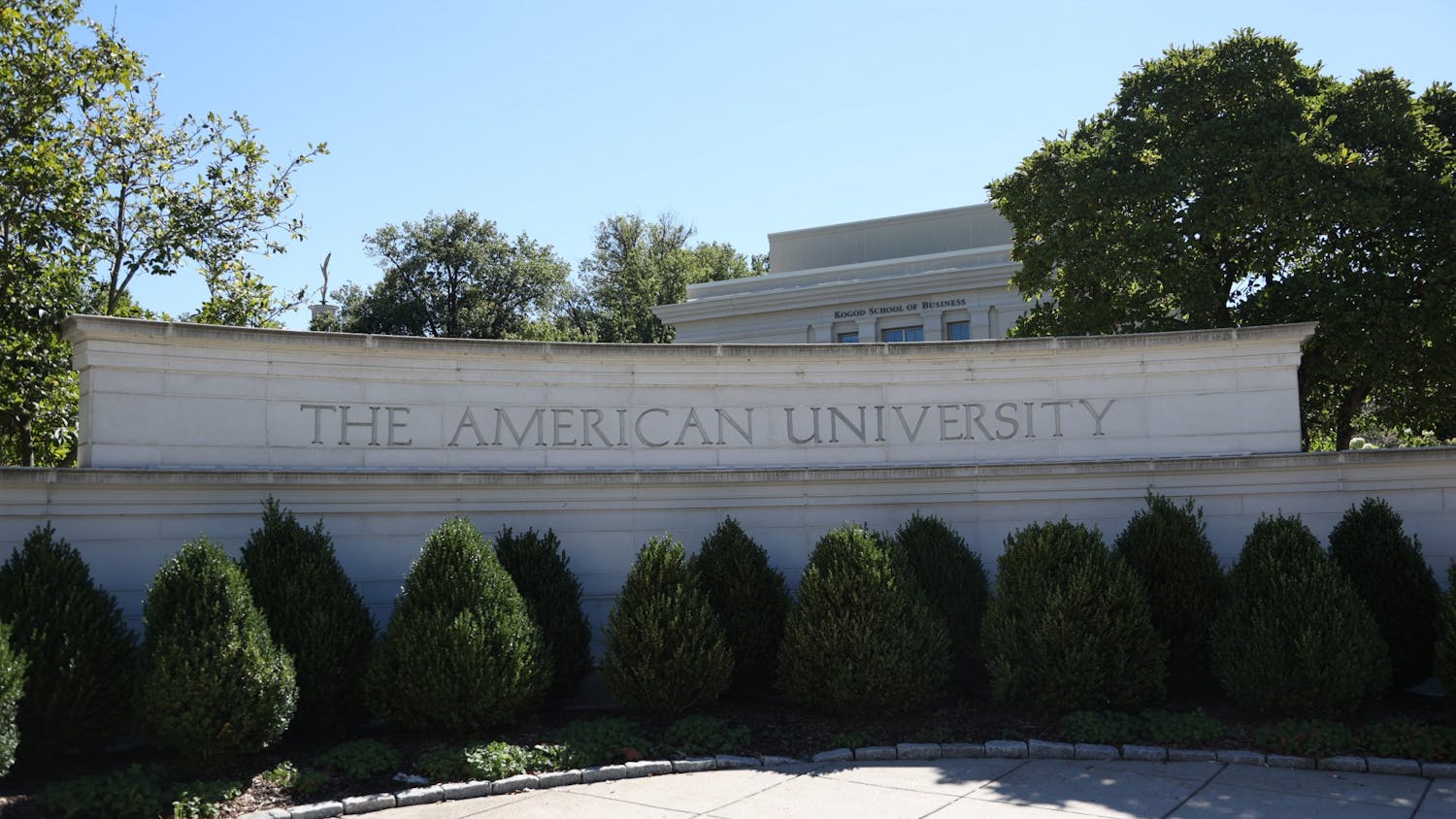Scroll to the bottom for excerpts from Pablo Neruda's poem "Your Laughter," which Ilan Stavans read at the event.
It wasn't a typical birthday party.
At the end of Pablo Neruda's centennial tribute Wednesday night, many who attended the event were lost in thought instead of rejoicing in song. There was standing room only in Kay Spiritual Life Center as students, faculty, award-winning authors and others listened to a recorded recitation from the Chilean poet.
Although Neruda, who won the Nobel Prize for Literature in 1971, has been dead for more than 30 years, to many in Kay he seemed very much alive after internationally renowned writers spoke about his life and work.
"His voice was slow, tired, monotonous, but magical, mesmerizing," said Esther Edwards, a journalist and author who knew Neruda during her childhood. She remembers meeting him around 1940, when she was a child and he was a celebrity back from Asia and Spain.
Others offered appreciation and eulogies. AU President Benjamin Ladner spoke about Neruda's impact and his poetry's ability to bring people together.
"My heart leaps up, to use an old phrase, when I come to a place like this and see we can still get people from the nation's capital to come hear words," Ladner said.
AU and the Embassy of Chile co-sponsored the tribute, and AU literature professor Myra Sklarew welcomed and introduced the speakers.
A guest list ranging from a Pulitzer Prize winner to Master's of Fine Arts candidates performed Neruda's poetry and offered insight into the poet's life.
"Neruda [was] a poet of immense possibilities," said Ilan Stavans, a professor of Latin American and Latino Culture at Amherst College. Neruda could write equally about the Universal Fruit Co., a chair or a shoelace, he said.
Fine arts students Cedric Tillman and Sandra Beasley read several works, including selections from Neruda's famous "The Heights of Macchu Picchu."
While Tillman was surprised when he was chosen to perform, he felt he was up to the task.
"There's so much emotion in 'Macchu Picchu,'" Tillman said. "Once I put myself in [Neruda's] shoes, I was able to read it the way he intended."
Galway Kinnel, a professor at New York University and winner of the 1980 National Book Award, shared his experience of seeing Neruda perform in New York City in the 1970s. During the poem "Explico algunas cosas," Kinnel remembered hearing a "chuckling sound" coming from the audience. He looked around to see audience members sobbing.
As Kinnel left the stage, an audio recording of the poem was played. Similarly to when Kinnel heard the poem performed in the 1970s, several audience members were moved to tears.
However, not every moment of the event was solemn. Edwards' colorful descriptions of Neruda not only drew laughs from the audience, but praise from attendees.
"I really got to know more about [Neruda] as a person," senior Adriana Rojas said.
Students who weren't even born when Neruda died made up more than half of the audience. "He just makes universal statements [about] our fear, our hate, our everyday lives," Rojas said about Neruda's appeal to younger readers.
By the end of his life, many regarded Neruda more for his politics than his poetry, Edwards said.
She attended Neruda's funeral in 1973.
"He had become a political instrument," she said. She realized this after a lawyer spoke about his political contributions, a statement that moved Edwards to tears. She then remembered Neruda's "Ode to Sadness" and the importance of his poetry.
"Above all he was gentle, very gentle, and hated confrontations - and what a great storyteller he was!" she said.
Excerpts from "Your Laughter" by Pablo Neruda
Take bread away from me, if you wish, take air away, but do not take from me your laughter. Do not take away the rose, the lance flower that you pluck, the water that suddenly bursts forth in your joy, the sudden wave of silver born you... ...Next to the sea in the autumn, your laughter must raise its foamy cascade, and in the spring, love I want your laughter like the flower I was waiting for, the blue flower, the rose of my echoing country... ...but when I open my eyes and close them, when my steps go, when my steps return, deny me bread, air, light, spring, but never your laughter for I would die.
-Read by Ilan Stavans during the tribute.




